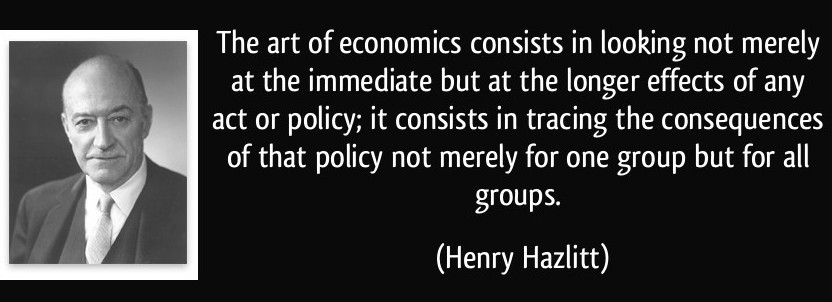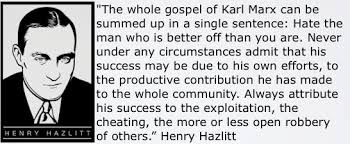|
home | what's new | other sites | contact | about |
||
|
Word Gems exploring self-realization, sacred personhood, and full humanity
Henry Hazlitt Economics In One Lesson The Broken Window
"Let us begin with the simplest illustration possible: let us ... choose a broken pane of glass. "A young hoodlum, say, heaves a brick through the window of a baker's shop. The shopkeeper runs out furious, but the boy is gone. A crowd gathers ... several [in the crowd] are almost certain to remind the each other or the baker that, after all, the misfortune has its bright side. "It will make business for some glazier... How much does a new plate glass window cost? A hundred dollars? ... After all, if windows were never broken, what would happen to the glass business? "Then, of course, the thing is endless. The glazier will have $100 more to spend with other merchants, and these in turn will have $100 more to spend with still other merchants... The smashed window will go on providing money and employment in ever-widening circles.
"Now let us take another look. "The crowd is at least right in its first conclusion. This little act of vandalism will in the first instance mean more business for some glazier. The glazier will be no more unhappy to learn of the incident than an undertaker to learn of a death. "But the shopkeeper will be out $100 that he was planning to spend for a new suit. Because he has had to replace a window, he will have to go without the suit...
"Or ... instead of having a window and a suit, he must be content with a window and no suit. If we think of him as part of a community, the community has lost a new suit that might otherwise have come into being, and is just that much poorer.
"No new 'employment' has been added. The people in the crowd were thinking only of two parties to the transaction, the baker and the glazier. They had forgotten the potential third party involved, the tailor.
|
||
|
|

